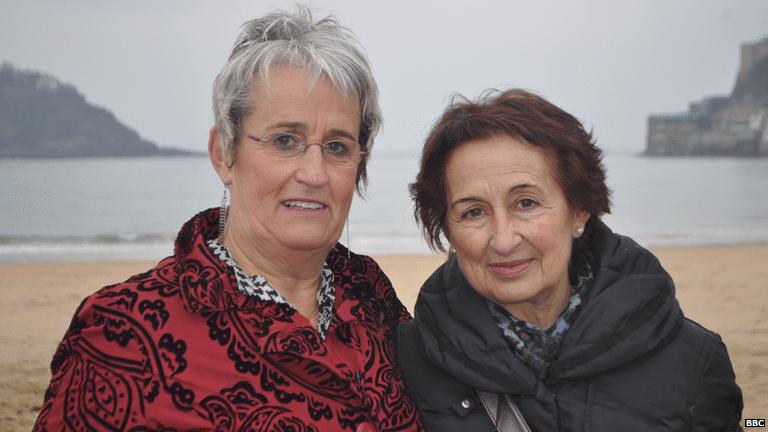French and Spanish police arrest five over 'Basque Eta arms cache'
- Published
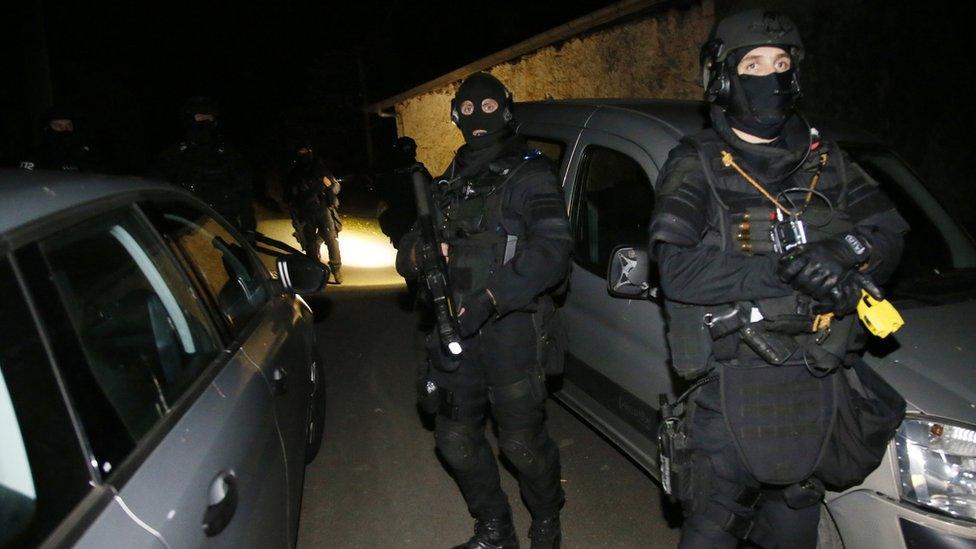
French and Spanish officers carried out the raid late on Friday
French and Spanish police have arrested five people following the discovery of a suspected weapons cache of the militant Basque separatist group Eta.
The guns and explosives were found in the town of Louhossoa, near Bayonne in south-west France, officials said.
However, French human rights lawyer Michel Tubiana said those arrested were activists who wanted to destroy Eta weapons and hand them to authorities.
Eta declared a ceasefire in 2011 but has refused to give up its weapons.
Mr Tubiana, honorary president of the Human Rights League of France, said he had initially intended to be with the activist group, but did not attend the meeting.
"We didn't hide, our plans were clear from the start," he told French media.
"There is a total blockage in the Eta disarmament process, a blockage which comes from the French and Spanish governments' side. Several civil society members wanted to re-launch the process, by carrying out a first destruction of weapons."
He added: "This police operation is clearly political."
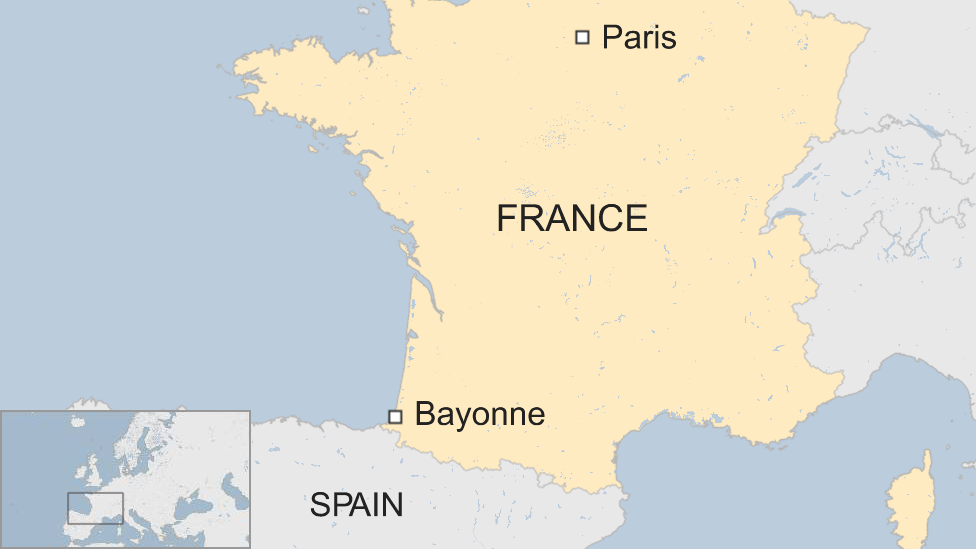
Sources close to the case said those arrested were to be transferred to Paris to be questioned by anti-terror prosecutors.
French Interior Minister Bruno Le Roux said on Saturday that "nobody has the right to proclaim themselves a destroyer of arms".
He said in an earlier statement that the arrests were "the result of excellent co-operation" with Spanish authorities and "a new blow to Eta".
The Spanish government has refused to negotiate with Eta. In 2014 the group said it had put some of its weapons "beyond use" but the government dismissed the statement as "theatrical".
Eta was formed more than 50 years ago in the era of Spanish dictator General Franco to fight for an independent Basque homeland.
It killed more than 800 people over four decades of violence.
- Published21 February 2014
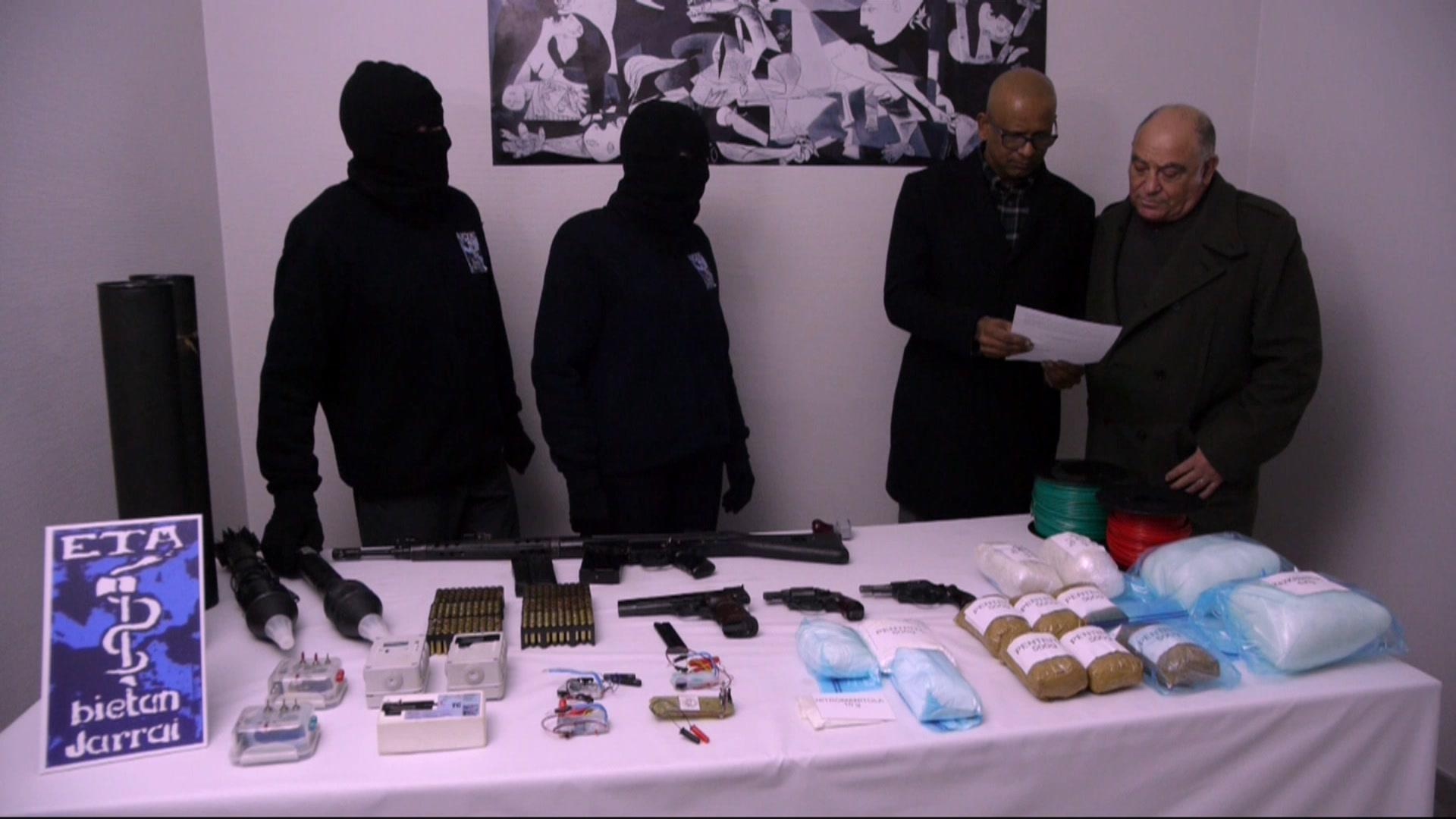
- Published4 January 2014
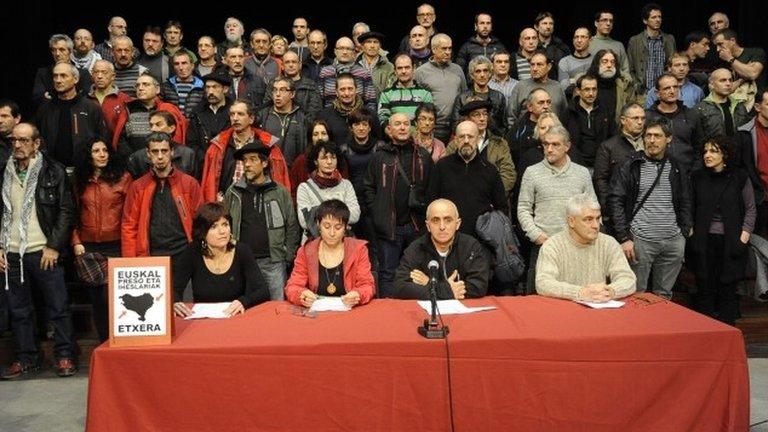
- Published26 December 2013
